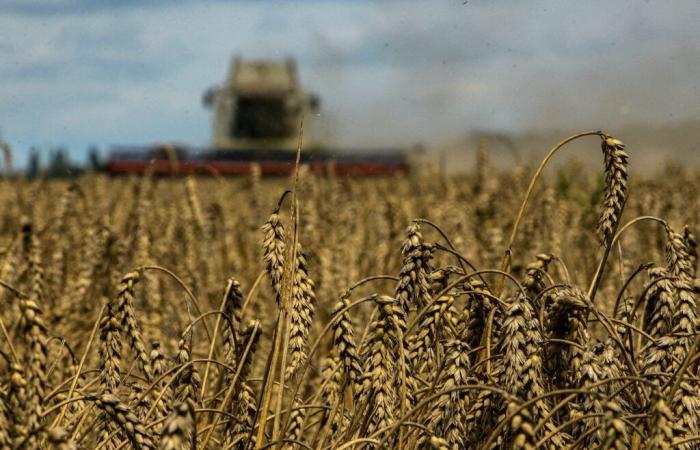Global food prices fell by 2.1% in 2024 compared to the previous year, according to the FAO. In question? The fall in world cereal prices. The price index calculated by the Food and Agriculture Organization of the United Nations (FAO), which tracks the variation in international prices of a basket of basic products, notably fell by 13.3% for cereals compared to 2023.
After the surge in the prices of cereals, and particularly wheat, in the wake of the Russian invasion of Ukraine, prices continued to fall to return to their pre-war prices on international markets. In December 2024, wheat export prices remained generally stable.
“Downward pressure from weak international demand and increased seasonal supplies from crops in Argentina and Australia were offset by upward pressure from poor winter crop conditions in Russia »explains the monthly FAO report.
World corn prices increased slightly, “supported by a slight increase in export sales and tighter supply in the United States, as well as strong demand for Ukrainian origins”. Among other coarse grains, world prices of barley increased, while those of sorghum declined.
Rice prices fell slightly (-1.2%) in December, driven by a “slowing demand” of fragrant rice. But they increased slightly over one year (+0.8%), notably supported by imports from several Asian countries during the first nine months of 2024.
-The sugar flows back
In addition to cereals, food prices have also fallen thanks to the fall in global sugar prices. Its price index notably fell by 13.2% compared to 2023. A drop mainly due to “Record exports from Brazil during the year” and to “positive outlook for global supply for the 2024/25 campaign”.
However, in September, sugar saw its price index increase by 10.4%, due to a gloomy outlook for sugar cane in the South American country. Brazil was then affected by droughts and fires. Furthermore, the Indian decision to lift restrictions on the use of sugar cane for the manufacture of ethanol had also raised fears of reduced export availability, according to the FAO.
Vegetable oils on the rise
The declines in sugar and cereals were nevertheless partly offset by the increase in the prices of dairy products (4.7%, notably driven by the prices of butter) and meat (2.7%). In fact, it is mainly vegetable oils (+9.4%) which have offset these declines. Despite a very slight decline in December, annual oil prices remained high.
Already from September to October, the vegetable oil index in particular had gained 7.3%. He hadn't reached such a level in two years. International palm oil prices are on the rise due to reduced seasonal production expected in major producing countries in Southeast Asia. The same goes for the prospects for sunflower and rapeseed production.






